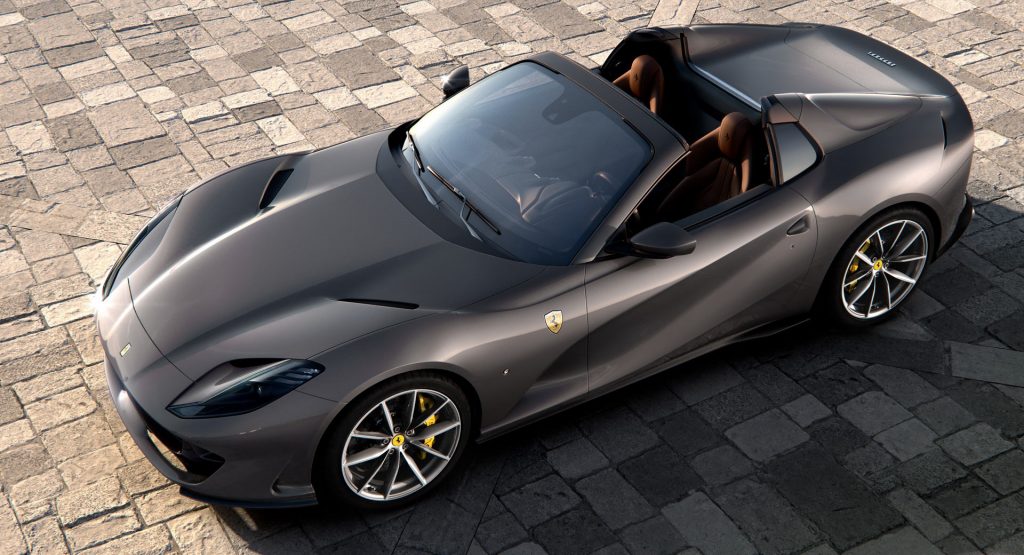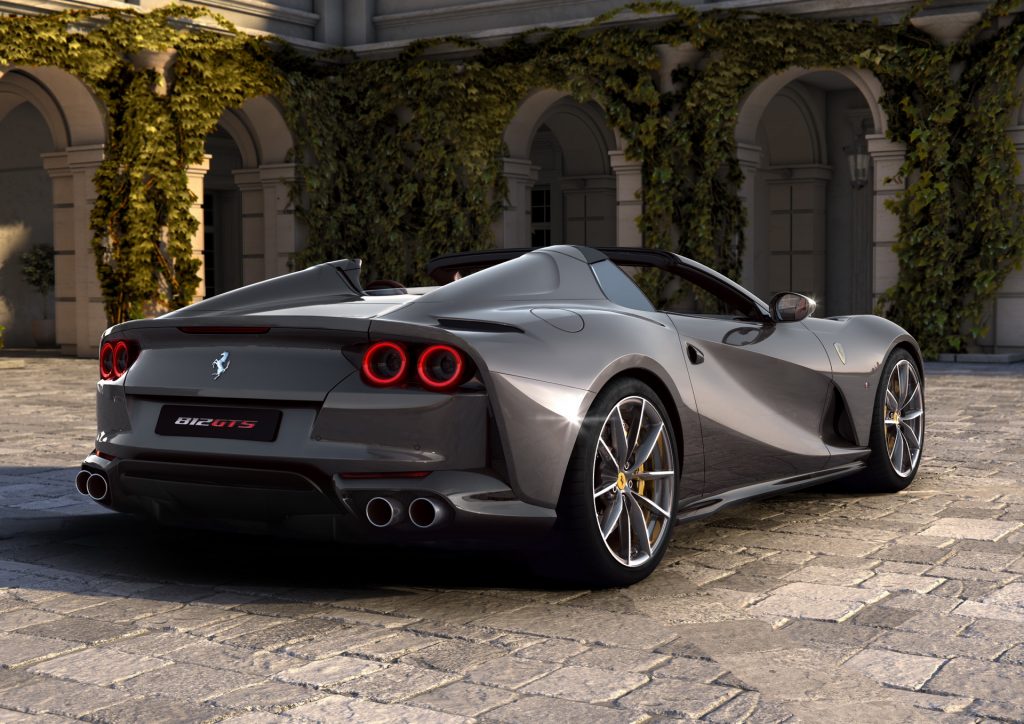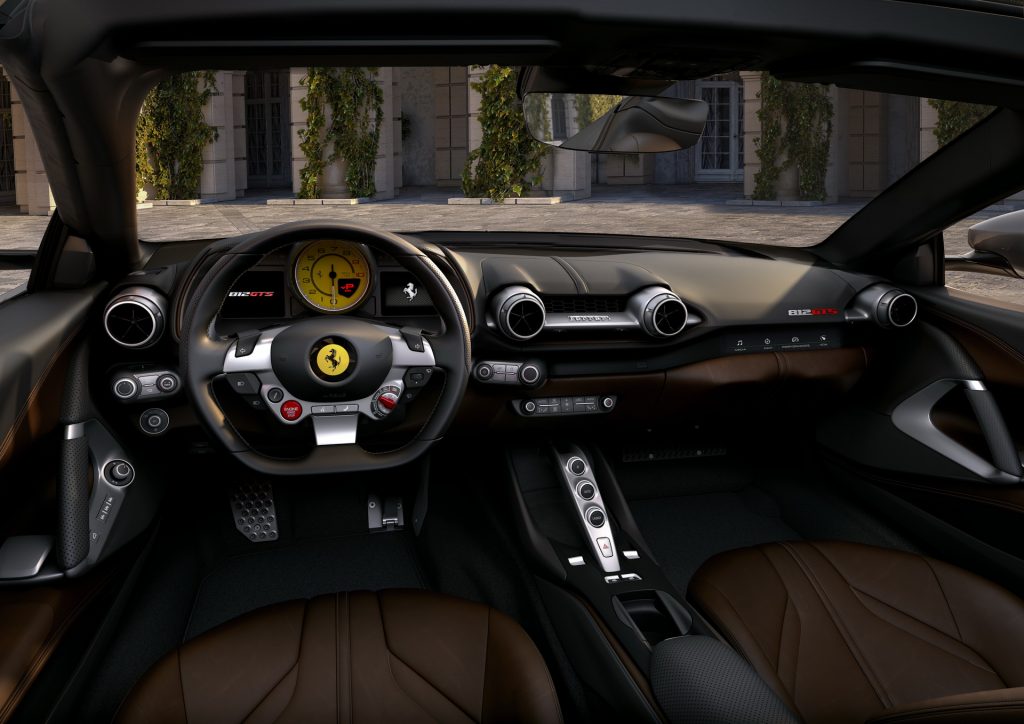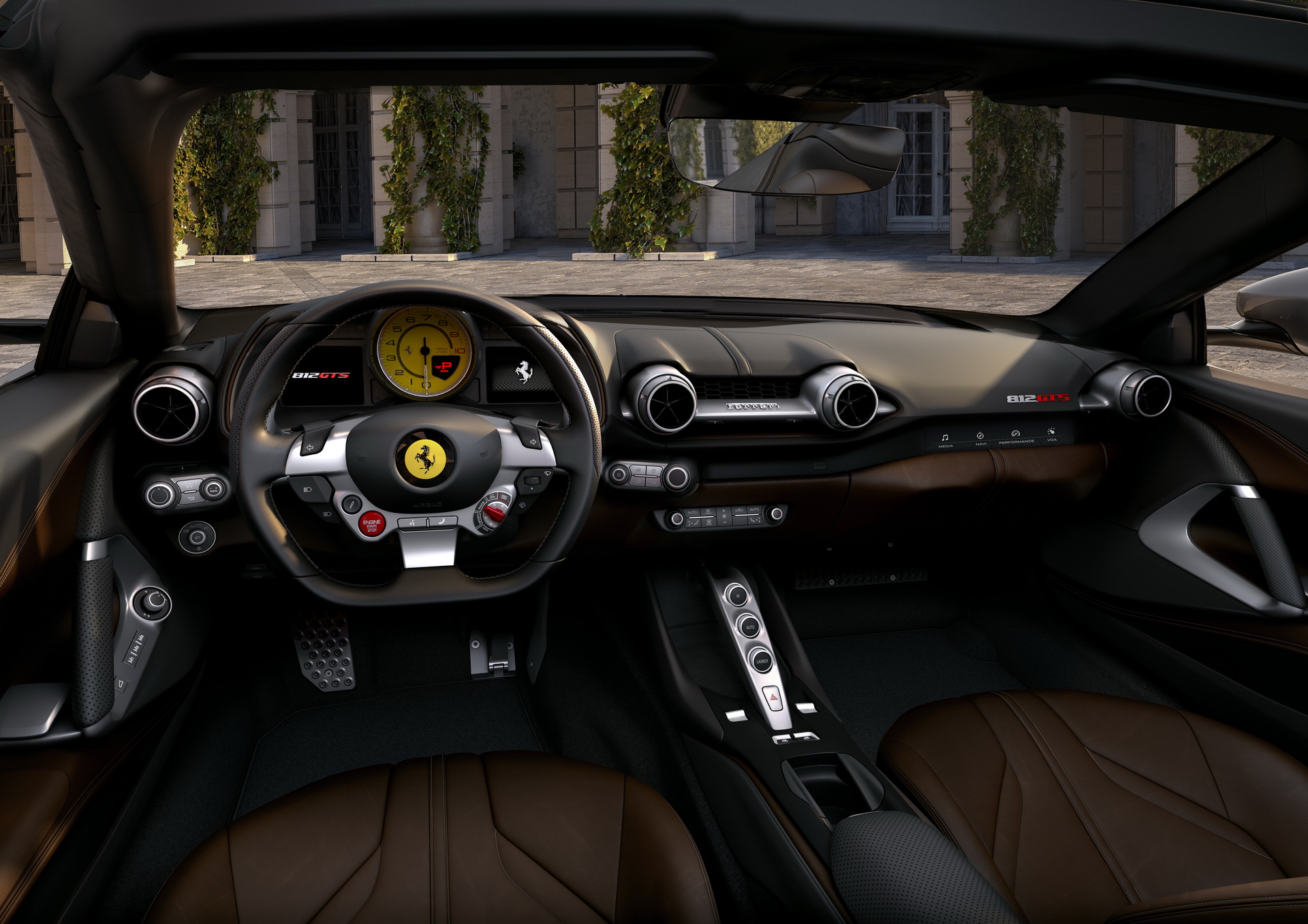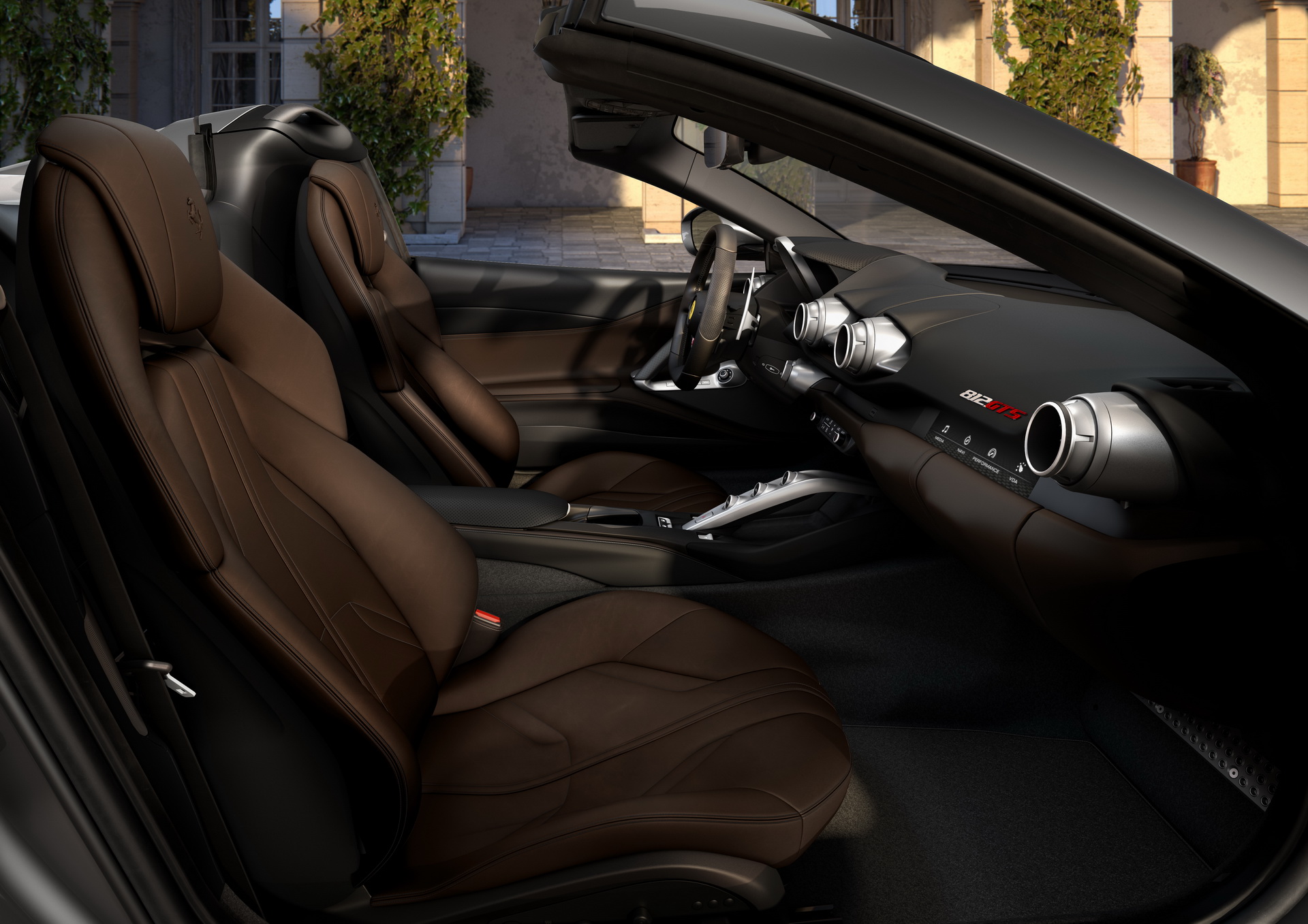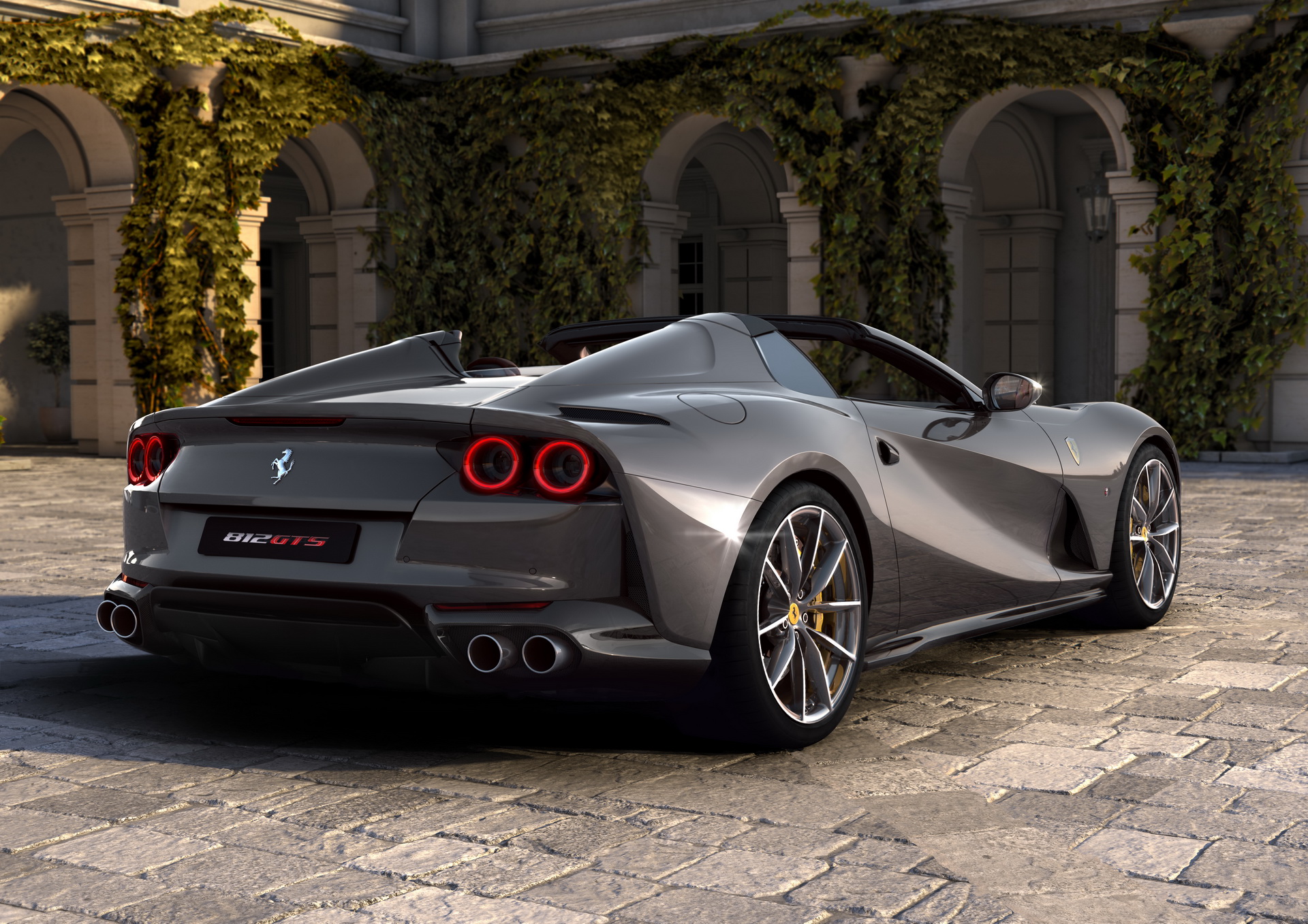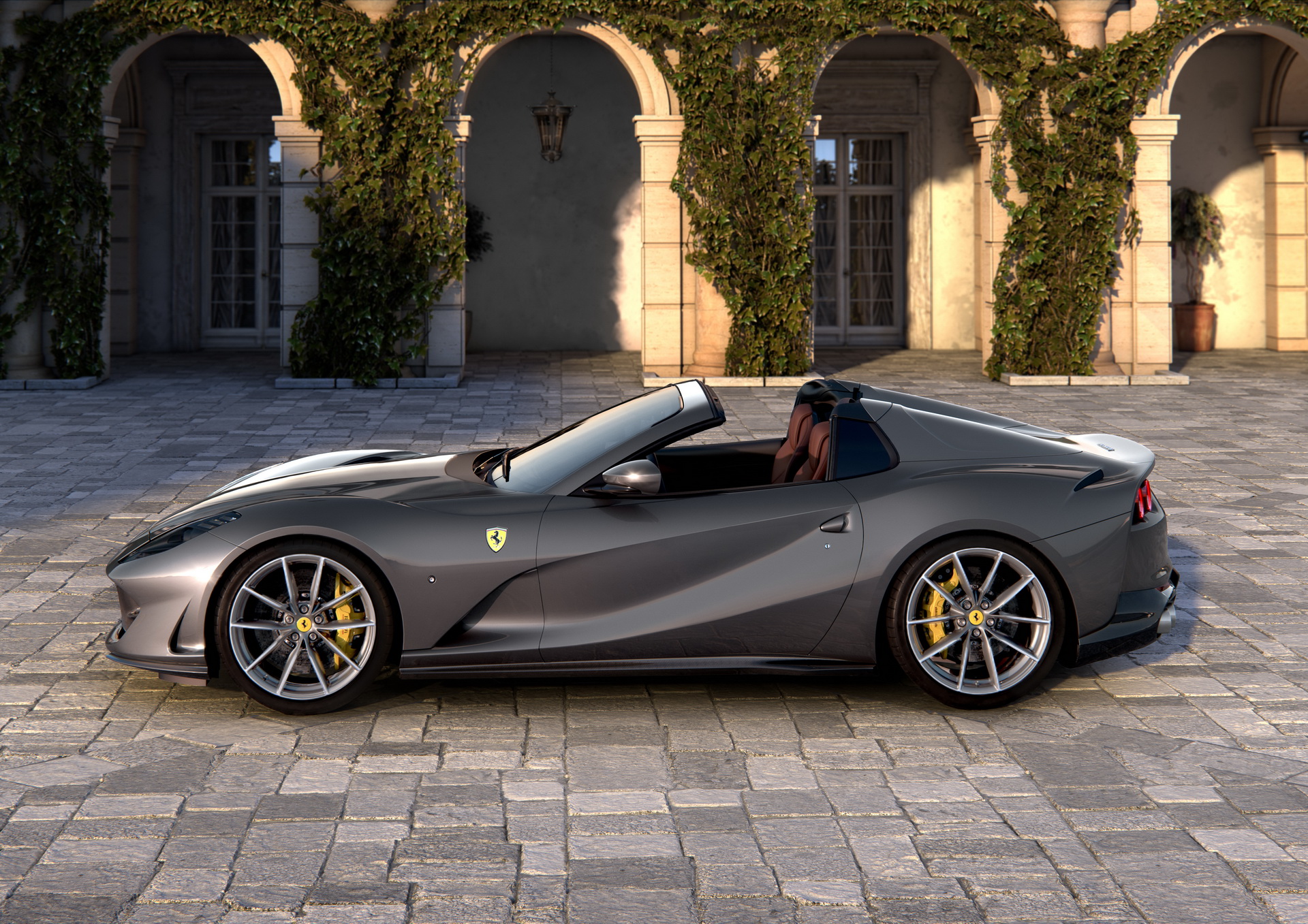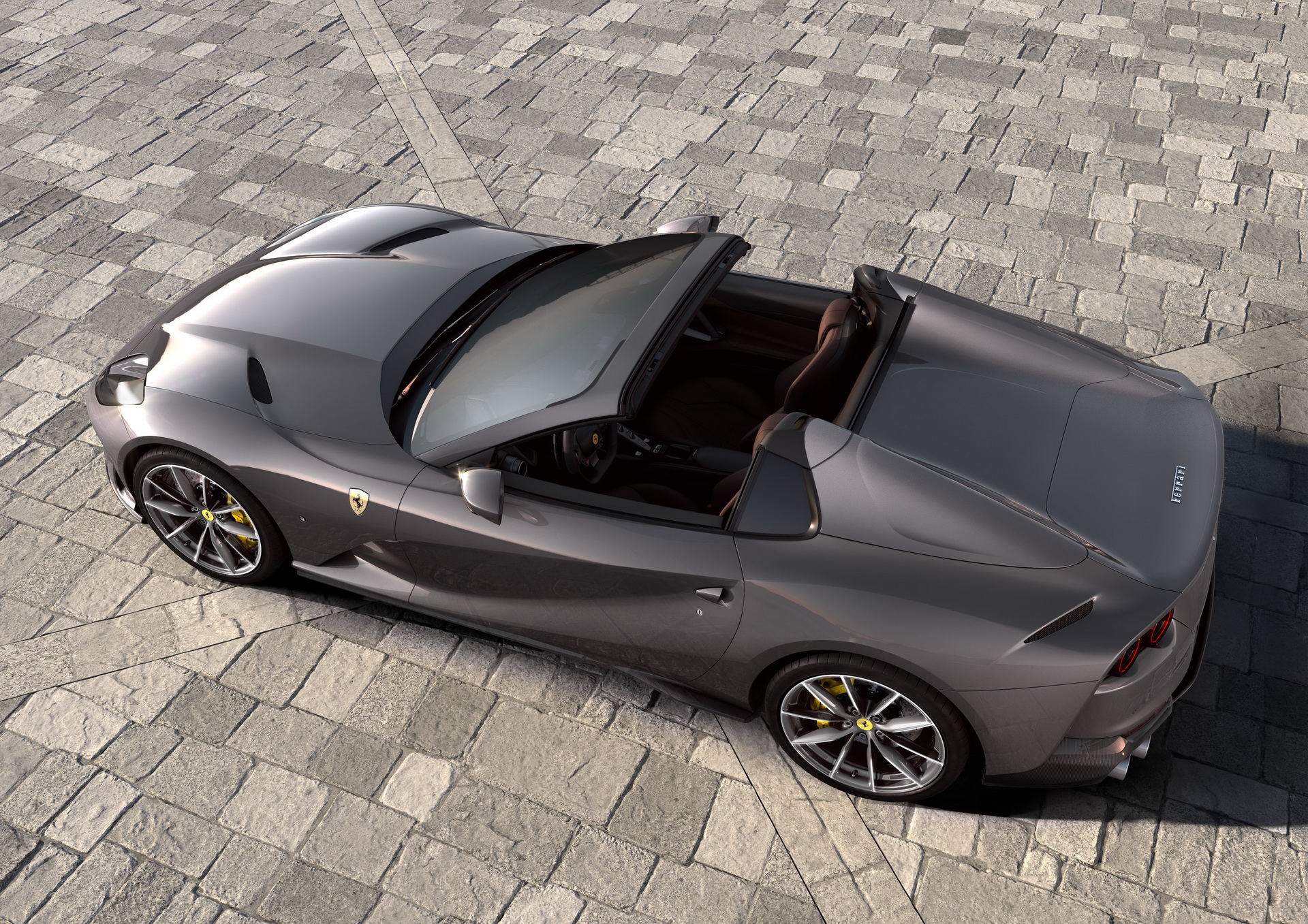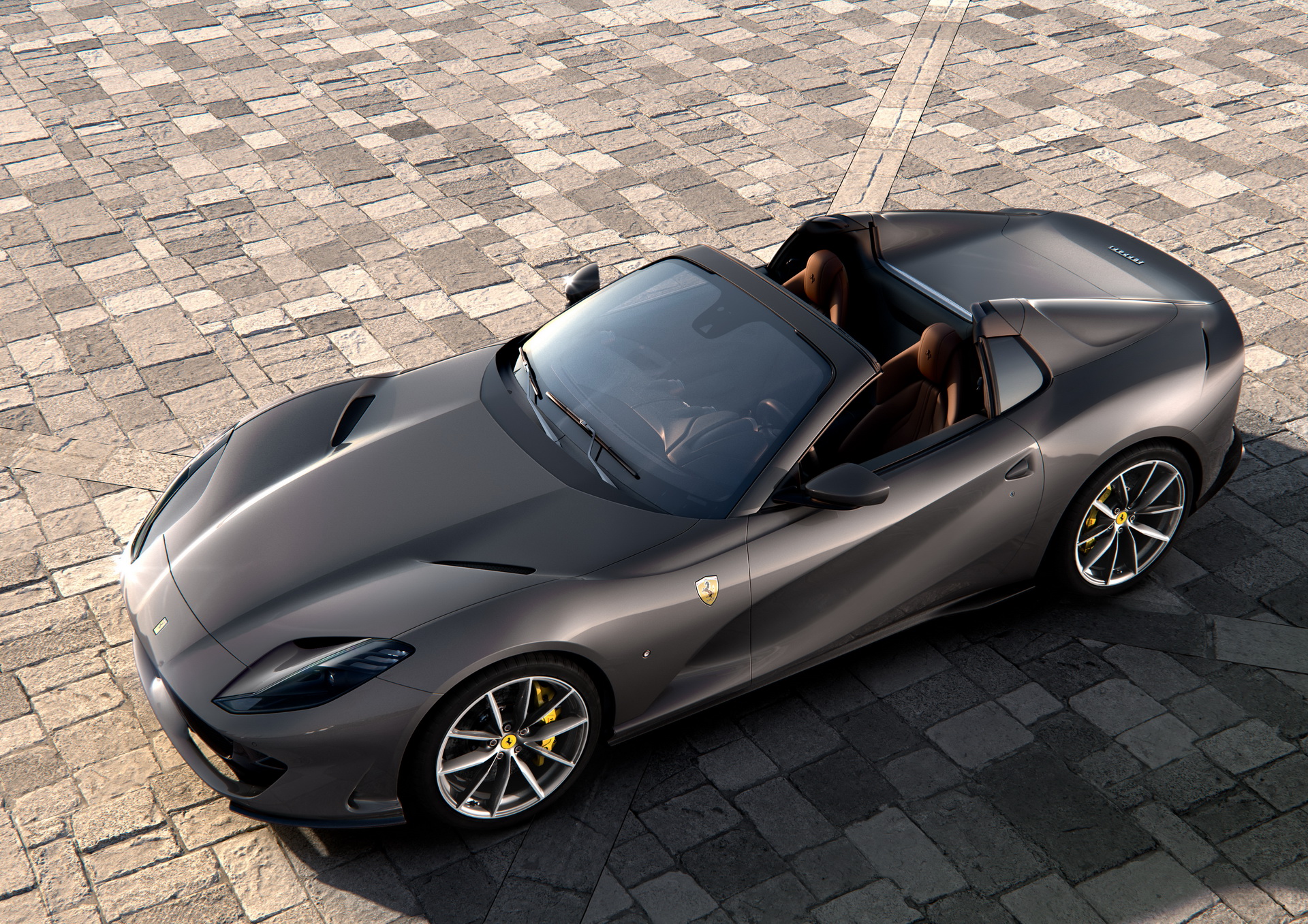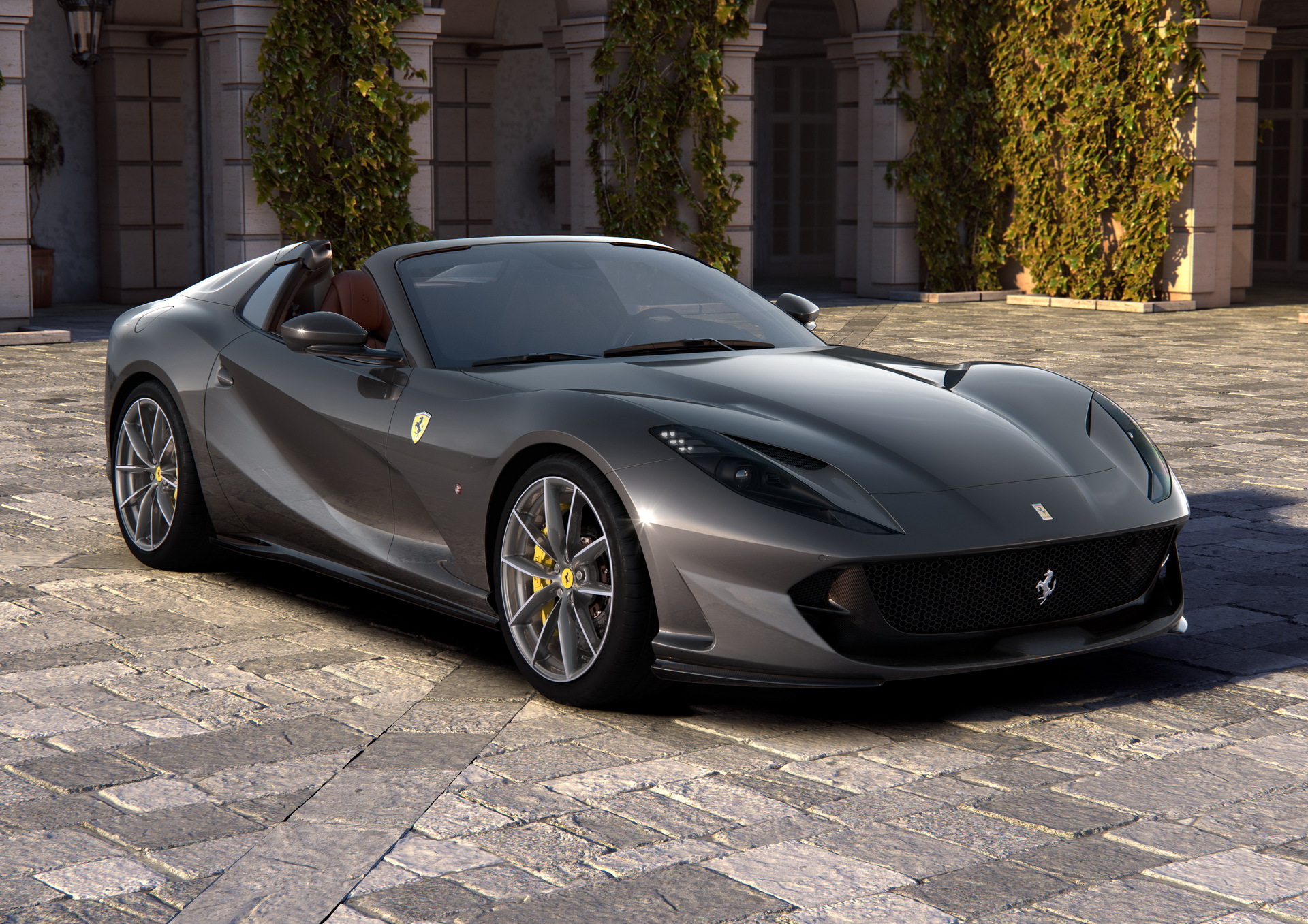Ferrari has officially revealed the new 812 GTS, the new open-top version of the 812 Superfast that is going to be a regular series model and not a limited run.
Rumors about Maranello developing a topless version of the 812 were confirmed last week, after a leak showed the car being presented during an exclusive event.
As expected, the GTS shares its hardware with the Superfast, meaning a naturally aspirated 6.5-liter V12 that produces 789 HP (800 PS) at 8,500 rpm and 529 lb-ft (718 Nm) of peak torque at 7,000 rpm, which, by the way, makes it the most powerful series-production convertible in the world.
Also Read: Ferrari 812 Superfast Spider Surfaces Ahead Of Its Debut Later This Month
Performance remains pretty close to that of the fixed-top 812, with Ferrari claiming a 0-62 mph (100 km/h) in less than 3 seconds, 0-124 mph (200km/h) in 8.3 seconds and a top speed in excess of 211 mph (340 km/h).
This is the first front-mounted V12 open-top Prancing Horse in series-production in half a century, the last one being the 1969 365 GTS4, most commonly known as the Daytona Spider. Since then, Ferrari customers were only offered special limited-series models like the 550 Barchetta in 2000, the Superamerica in 2005, the SA Aperta in 2010 and the F60 America in 2014, with the latter being produced in just 10 examples.
As with every modern convertible Ferrari, the new 812 GTS features a retractable hard top that opens or closes in just 14 seconds and at speeds of up to 28 mph (45 km/h). There’s also an electrically operated rear screen that acts also as a wind buffer and can be lowered even with the roof is closed, to let the driver and passenger enjoy the V12’s soundtrack and exhaust note even more.
The new Spider version of the 812 features a redesigned rear which is highlighted by the two buttresses and a new tonneau cover and luggage compartment. The rear diffuser has also been reshaped and sports an additional flap to compensate for the absence of the Superfast’s aero by-pass above the rear fenders.
Ferrari has also added two small L-shaped flaps on the upper corners of the windscreen, which help keep turbulence and aerodynamic noise in check, which, according to the company, enables the occupants to converse undisturbed even at high speeds.




